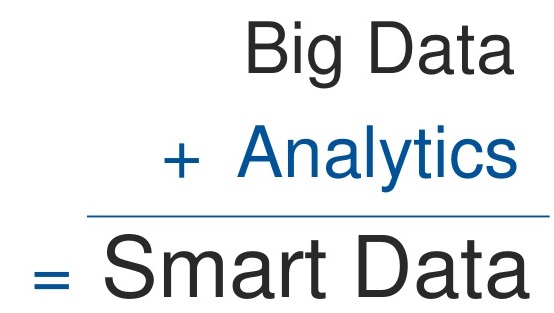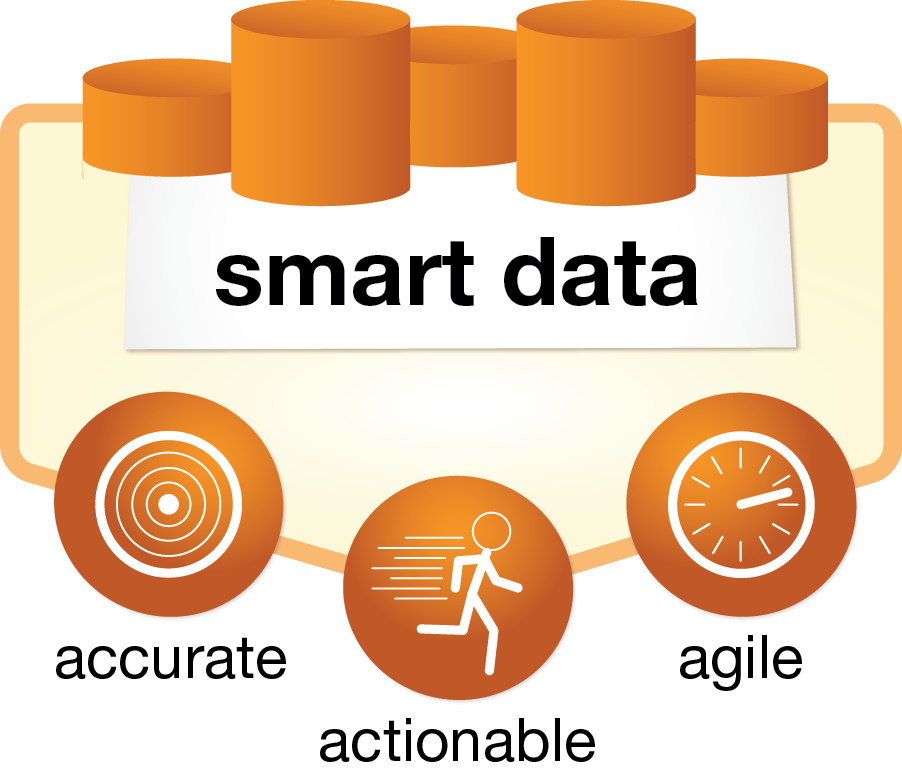Article Source
- Title: GOING FROM BIG DATA TO SMART DATA
- Authors: Eric Rice
Big Data vs. Smart Data

GOING FROM BIG DATA TO SMART DATA
The transition from “Big Data” to “Smart Data” is becoming more of a common conversation today, and for good reason. Right now mankind is creating more than 2.5 quintillion bytes of information every day which has essentially doubled the overall size the data market over the last two years. Collecting this massive amount of data has become fairly routine, it is the use of the data that seems to be lacking in today’s market.
WHAT’S THE DIFFERENCE BETWEEN BIG DATA AND SMART DATA?
To keep it short and sweet,
Big Data is the problem and Smart Data is the solution.
The main difference between big data and smart data comes down to size versus application. Big data is simply a buzz word code for “lots of data.” But data on its own is not dynamic. It’s static and unintelligent. It takes the right questions and the right insights to make it dynamic and useful.
Today there is an overabundance of data and not enough application for it. Smart Data uses contextual applications of Big Data to improve user experiences, drive new communications and simplify complex operations.
Big data isn’t a new dimension in business; it’s simply a new tool. It still takes smart leaders to make it smart. Getting value from data comes down to how easily you can do something with it.
«««< HEAD
 =======
=======

origin/master
DO YOU NEED BIG DATA TO CREATE SMART DATA?
It is common to hear company’s say that they want/need more data but there is already an overflow of data available today. The real question company’s big and small need to be asking themselves is how to use it and integrate it within their organizations.
Deriving value out of the data has little to do with size of the data-sets and much to do with how simply it’s accessed and how intelligently tools can use it to drive that optimized user experience. Smart data is what one does with their data irrespective of the size of the data sets.
«««< HEAD
 =======
=======

origin/master
SMART DATA AND SEMANTICS
Smart data is data with semantics attached. Adding more data isn’t the solution. Adding semantics is what gives data meaning. Smart Data has the potential to unlock value and insight in analysis, business intelligence, and decision support along with about a million others. If done right, smart use of data has the potential to make all of the rest of your decisions smarter. Data is only useful if used in an intelligent manner.